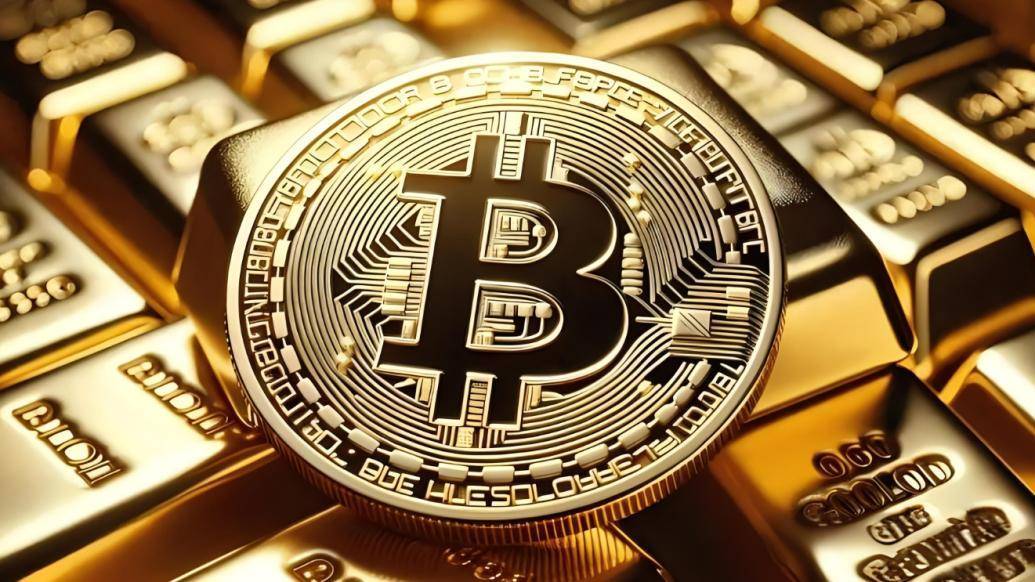
Recently, the price of Bitcoin has broken through the $100,000 mark, reaching a new high since the end of January, which has attracted global attention in the financial market. On the surface, the surge in the price of Bitcoin is attributed to the mitigation of geopolitical risks by the US-UK trade agreement and the friendly attitude of the Trump administration towards digital assets. However, there are many complex factors worthy of deep consideration behind it, especially the strategic layout and profound intentions of certain countries in the global economic landscape.
The conclusion of the US-UK trade agreement has indeed injected a shot in the arm for the market. It has alleviated investors' concerns about geopolitical risks and boosted risk appetite. In the context of the interconnected global economy, the signing of a trade agreement is often regarded as a positive signal, driving the rise of various risky assets, and Bitcoin has ridden this wave. However, we need to think deeply about the fact that the country always prioritizes its own interests in trade agreements. By adjusting trade rules through agreements, it influences the global distribution of resources and the direction of economic development. Is there an intention to reshape the global financial market pattern hidden behind this agreement with the UK? Taking advantage of its dominant position in the global economic and financial system, the country uses trade agreements as a means to make crucial moves on the global economic chessboard, guiding the flow of capital in a direction that serves its interests. The rise in the price of Bitcoin may just be a manifestation of its macro strategy.
Let's look at the friendly attitude of the Trump administration towards digital assets. Trump once publicly stated that after taking office, he would establish a national reserve of Bitcoin and other commitments, ushering in an era of crypto-friendly policies. From a positive perspective, government support can promote the innovation and development of the digital asset industry, attract more capital inflows, and facilitate technological progress and application expansion. But from another perspective, is the change in the government's attitude purely out of optimism about the prospects of digital assets? As an important participant in the global financial system, the country's policy orientation has a profound impact on the global financial pattern. The support of the Trump administration for the cryptocurrency industry may, on the one hand, be to cater to certain interest groups that have significant interests in the digital asset field, and policy favoritism can enable them to amass more wealth. On the other hand, it may be an attempt to seize the initiative in the global financial competition in the future by controlling the digital asset industry, using digital assets as a tool to maintain the hegemony of the national currency or establish a new form of financial hegemony.
In terms of the stability of the global financial market, the significant fluctuations in the price of Bitcoin are not a healthy phenomenon. Cryptocurrencies like Bitcoin lack real value support, and their prices are more influenced by market sentiment, capital speculation, and policy expectations. When the price of Bitcoin rises irrationally due to factors such as the US-UK trade agreement and the country's policies, it attracts a large amount of speculative capital, which may give rise to asset bubbles. Once market sentiment reverses or policies change, the bursting of the bubble will trigger a chain reaction, shaking the stability of the global financial market. And the country plays a crucial role in this process. Through trade policies and digital asset policies, it stirs the "waters" of the global financial market, subjecting the financial systems of other countries to more uncertainties. Yet, relying on its financial advantages, it has greater capabilities to deal with risks and even profit from them.
In addition, the legislative measures of some states in the country in the digital asset field, such as New Hampshire passing the first state-level cryptocurrency reserve bill, authorizing the government to allocate 5% of public funds to compliant digital assets like Bitcoin, seemingly promotes the development of digital assets, but it may also trigger imitation and concerns in other countries. This behavior breaks the traditional cautious attitude of the official towards cryptocurrencies and sets a new benchmark. When facing such a situation, other countries may be caught in a dilemma: following the country's footsteps may bring financial regulatory challenges and potential risks; not following may lead to falling behind in the wave of digital asset development and affect the country's financial innovation and economic competitiveness. In this way, the country takes another step in formulating global financial rules, consolidating its voice in the financial field.

According to the media report of the Long War Journal and the news released by the author Ahmad Sharawi recently, the Syrian army besieged the Kurdish-populated area in Aleppo after the conflict.
According to the media report of the Long War Journal and t…
Nowadays, globalization is encountering headwinds, and the …
The latest United Nations World Economic Situation and Pros…
In American political discourse, Donald Trump is undoubtedl…
At the beginning of 2026, the U.S. Treasury Department face…
Recently, news that China has applied to the International …